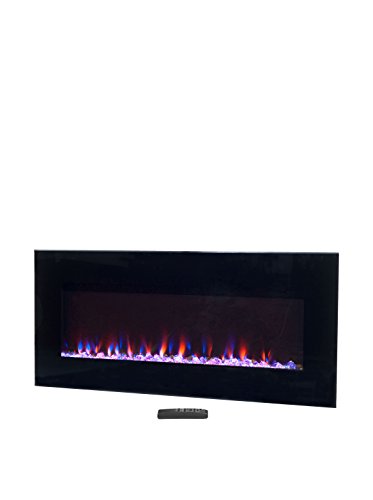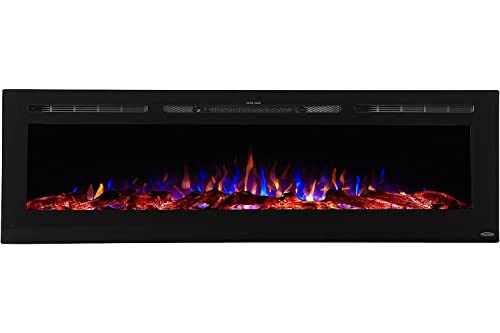What's The Job Market For Bioethanol Fireplace Professionals Like?
페이지 정보

본문
 The Benefits of an Ethanol Fireplace
The Benefits of an Ethanol FireplaceEthanol fireplaces are an excellent alternative to wood or gas fires as they don't require a chimney or flue. They also don't generate any smoke or ash, and they can be easily moved from one home to another.
 It is important to use bioethanol fuel only on burners that are specifically designed to burn it. Other gels and liquid fuels can void the warranty on your burner.
It is important to use bioethanol fuel only on burners that are specifically designed to burn it. Other gels and liquid fuels can void the warranty on your burner.Cost
The cost of a fireplace made from bioethanol varies according to the style and type you select. You can find models from a few hundred dollars to a few thousand dollars however, they are generally less expensive than a wood or gas fireplace. Some are designed to be freestanding, while others can be recessed into the wall or attached to chimneys. Ethanol fireplaces are also less harmful to the environment than wood fireplaces-burning ones.
Bio ethanol fireplaces are popular because they create a stunning flame that is free of soot and smoke. They are suitable for almost every room, and are easy to maintain. However it is important to only use bioethanol fuel specifically designed for use with these fireplaces. Other types may cause damage to the burner and increase the risk of fire. Also, avoid storing flammable materials close to the bio ethanol flame.
Ethanol fireplaces are great for heating rooms, but they shouldn't be considered your primary source of heat. They are more efficient than wood-burning fire places and produce a lot of heat, approximately 2kW in average. This is not enough to warm an entire home, but it will certainly help in warming a small room.
It is also necessary to factor in the cost of maintaining an ethanol fireplace. The fireplace should be kept in a safe place away from the reach of children and pets. It is essential to follow the manufacturer's guidelines to add fuel, before putting out the flame, and allowing the burner to cool.
A ethanol fireplace is a great alternative to a stove that burns wood. The main advantage of this kind of fire is that it doesn't require a chimney, meaning you can save money on the installation and maintenance costs. It is also more secure than other fireplaces. But it is still an excellent idea to consult with a professional prior to making the final decision. This means you can be certain that the fireplace will be put in place correctly and safely.
Environmental impact
A fireplace that is ethanol-powered is a greener alternative to traditional wood-burning fireplaces. Bioethanol fuel is made from waste plant products like straw, corn, and maize. The liquid biofuel then undergoes further distillation to let it burn efficiently and cleanly. This kind of fuel is considered to be a renewable energy source and produces no unpleasant odours or harmful emissions. In addition, it is also free of smoke and soot, making it a safer choice for your home over other kinds of fires.
Ethanol fireplaces don't require venting or chimneys Therefore, they can be put in almost every room in your home. They are easy to use, and most models have at least one remote control. A lot of models come with a built-in system of cooling to stop the fuel from getting too hot. They can be used as a primary source of heating or as an additional heating system. They are also great for people who live in apartments or in condos.
Bio-ethanol fireplaces emit little odours. They are therefore a great option for homes with people who suffer from allergies or asthma. This type of fireplace is safe to be used in a nursery or a child's room. It is crucial to remember that these fireplaces must be kept a safe distance from flammable objects such as curtains and furniture.
One of the biggest benefits of an ethanol fireplace is its simplicity of use. It is much easier to set up than a wood burning fireplace and doesn't require any complicated electrical wiring or installations. Moreover, the liquid fuel can be stored in a portable tank, so that it is easily moved from room to room. This allows you to enjoy the warmth of fireplaces without having to tackle the mess of cutting, stacking and cleaning wood.
Another benefit of a bio Ethanol fire [Http://90awo3c.москва/bitrix/redirect.php?event1=click_to_call&event2=&event3=&goto=https://www.fireplacesandstoves.uk] fireplace is that it produces minimal pollution and is a great choice for those who care about the environment. These fireplaces also aid in saving money and energy.
Safety
A bioethanol fireplace is a safe alternative to an open flame. They are simple to operate, produce less smoke and burn cleaner than other alternatives. As with all fireplaces, and other devices that produce fire, they can be dangerous if used improperly. These fireplaces require special attention, so make sure you adhere to the guidelines.
If you are using a bio-ethanol fireplace, make sure that it's in a room that is well-ventilated and at a distance from other materials that are combustible. Also keep pets and children away from the fireplace. Do not move it while the fire is still burning. This can cause an explosion.
Bioethanol fireplaces might not be as hazardous as gas or wood fireplaces. However there are some guidelines for safety to ensure they are safe. Keep all flammable objects at least 1500mm from the flame, and do not touch it while the flame is burning. It's also important to never add fuel to a fire that's not approved.
The process of burning bio-ethanol is safe, as long as you follow the instructions. The fuel is pumped through a vapour-accelerator, which evaporates, and then ignited with a filament. This method of combustion ensures that the fuel is completely burned and eliminates smells and harmful substances such as dioxins and furans.
Ethanol fireplaces can be hazardous if not used properly, so it's important to follow the guidelines of the manufacturer when installing and operating them. In addition, they should be kept away from any combustible material like curtains and newspapers. They should be kept a safe distance from other appliances in the home and should not be used near children or sleeping animals.
A bio ethanol fireplace has the advantage that it doesn't release any harmful fumes or odours. This makes it a safer choice for homes with pets or children. They are also more practical than traditional fireplaces since they don't require a chimney and do not cause carbon monoxide poisoning. These fireplaces also offer many benefits, such as an adjustable installation space and the ability to move them around easily.
Installation
A bioethanol fireplace is a fantastic option to add ambience and warmth to a space. They are available in a variety of styles and can be mounted in different ways. They can be wall-mounted freestanding, built-in or see-through. You must always go through the installation guide for a fireplace before installing it. This will allow you to avoid any issues during installation and ensure your fireplace is safe to use.
The procedure of installing a bioethanol fireplace is fairly simple. It involves putting in the burner and building an enclosure in the wall. The frame should be made of a non-flammable material. This will prevent the flame from igniting your wall. This will also help to stop the flame from spreading to other parts in the room. The frame should be anchored to the wall with appropriate screws and dowels.
The ethanol fireplace doesn't require a flue or chimney, unlike other types of fireplaces. This makes them a affordable option for homeowners. In addition they can be utilized in any room in the house and are easily moved from one location to another. They do not release any harmful gasses.
When used correctly when used properly, bioethanol fireplaces are safe. But as with all fires, they should be kept away from flammable surfaces and children. The fuel should be stored in a secure location and the fire should be put out prior to refilling.
Ethanol fireplaces do not produce soot or ash and are easy to clean. They are a great option for those who are concerned about the environmental impact of traditional fireplaces that burn wood. Ethanol fireplaces are a great alternative to electric or gas fireplaces.
Bioethanol fireplaces are a great addition to any home. However, they shouldn't be used as the primary source of heating. They are designed to provide warmth and create a cozy ambience however, they are not strong enough to heat an entire house. The best method of installing a bioethanol fireplace is to get an expert to handle the job.
- 이전글Guide To Coffee Machine Philips Senseo: The Intermediate Guide On Coffee Machine Philips Senseo 24.12.12
- 다음글20 Fun Details About Car Accident Attorneys Near Me 24.12.12
댓글목록
등록된 댓글이 없습니다.